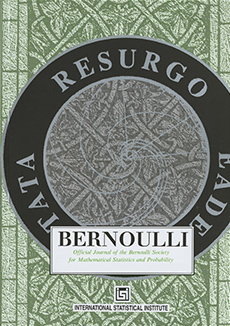Abstract
In this article, we revisit the problem of estimating the unknown zero-symmetric distribution in a two-component location mixture model, considered in previous works, now under the assumption that the zero-symmetric distribution has a log-concave density. When consistent estimators for the shift locations and mixing probability are used, we show that the nonparametric log-concave Maximum Likelihood estimator (MLE) of both the mixed density and that of the unknown zero-symmetric component are consistent in the Hellinger distance. In case the estimators for the shift locations and mixing probability are $\sqrt{n}$-consistent, we establish that these MLE’s converge to the truth at the rate $n^{-2/5}$ in the $L_{1}$ distance. To estimate the shift locations and mixing probability, we use the estimators proposed by (Ann. Statist. 35 (2007) 224–251). The unknown zero-symmetric density is efficiently computed using the R package logcondens.mode.
Citation
Fadoua Balabdaoui. Charles R. Doss. "Inference for a two-component mixture of symmetric distributions under log-concavity." Bernoulli 24 (2) 1053 - 1071, May 2018. https://doi.org/10.3150/16-BEJ864
Information





